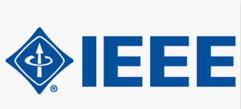The deadline for proposing Special sessions has been extended to
January 10th, 2020.
See information on Accepted Special Sessions.
The deadlines for all Special Sessions are the same with the conference deadlines.
Call for special sessions
To enhance the technical program and focus on specific topics and areas, ICPS2020 will include special sessions, in addition to regular ones. Special sessions can cover subjects or cross-subjects belonging to the topics of interest, or novel topics related with the ones identified within the topics of interest. Special sessions can also have the drive from specific Research & Innovation (R&I) projects or clusters of projects. Special sessions provide the opportunity to focus in detail on particular emerging topics, which are not reflected in the list of conference tracks, and/or to represent a specific working field where researchers, practitioners and industrialists would like to meet and discuss advances.
The ICPS2020 organizing team invites professionals in the area of industrial informatics to propose special sessions to be held at ICPS2020 in Tampere, Finland.
A good quality paper may be considered for publication in IEEE Transactions on Industrial Informatics subjects to further rounds of review. If you are interested in organizing a special session, please follow the indications described here under and contact Special Sessions Co-Chairs at specialsessions@icps2020.fi
The submission and decision making for SS are continuous until the deadline.
Decisions are taken as soon as possible.
It is advised to submit early a special session, in order to maximize the time available until the paper submission deadline.
Proposal content
If you’d like to propose and organize a special session, please send us a proposal using the template below and including the following information.
- Title of the special session.
- Brief description of the area of concern, with special focus on specific technical areas. Please make here an explicit reference to the sponsoring IES Technical Committee(s) (if any).
- The name and contact information of two or more special session organizers, who are willing to promote and organize a sufficient number of quality submissions to the special session.
- A list of potential reviewers and their affiliations.
- Short CV of the proposers.
Proposal template, the word version of the template needs to be sent (and not a generated pdf).
Organizing your special session
Once approved, it is the duty of the organizers to publicize their special session among researchers, practitioners and industrialists in the field and attract a sufficient number of papers. Note: the organizers may send their own Call-for-Papers, customized for their SS, to the ICPS2020-Organizing Committee (specialsessions@icps2020.fi) and it will be published on the conference webpage.
Papers submitted to special sessions will undergo the same review process as regular papers. The special session chairs of the respective special session are responsible for organizing the review process, assuring at least three reviews per paper. This includes selection of reviewers from their peers.
Before starting the review process, session organizers must explicitly declare papers which present a conflict of interest for them. A conflict of interest arises where the judgement of a paper quality can be influenced by the organizers being authors or knowing some of the authors. To ensure independent reviews, this conflict must be marked as such in the conference submission system and the session Chairs notified so that they can arrange the review process.
A minimum of six accepted papers is required for each session.
In addition to achieving at least 6 accepted papers, for a Special Session to be considered successful (and, as such, included in the program) it must consist of papers from at least three different institutions. Institutions jointly participating in the same paper are considered the same institution for the purposes of checking if an SS accomplishes this requirement.
The following requirements also apply to Special Sessions:
- An individual cannot be (co‐)author of more than two papers submitted to the same Special Session.
- An individual can be (co‐)organizer of up to two Special Sessions.
- Papers from organizers cannot exceed 60% of the contents of the Special Session.
If a session has too few papers, accepted papers will be allocated to regular sessions wherever possible. In case of indication of weak-organized special sessions, the conference organizers will offer advice, but reserve measures including cancellation of the respective special session.
Detailed guidelines for Special Sessions are in section 3 of the document http://www.ieee-ies.org/images/files/conferences/policies_and_guidelines/IES_Conferences_PaG_05_Management_and_awareness.pdf.


